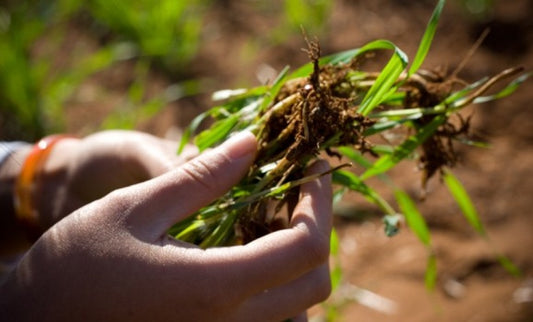Solutions
The simple solution seems to be ecosystem restoration and maintenance and getting back to organic farming. Excessive and unnecessary pesticide use needs to stop, and habitat needs to be planted. In Europe, farmers are experimenting with strips of wildflowers on the edges and interiors of large fields. Bees find the flowers and in turn pollinate the surrounding crops. This is a sensible and natural solution to bring bees back to sustainable numbers. The Garden Media annual Garden Trends Report predicts that robo farming will become more mainstream. Drones and robots are being developed for all phases of a growing season - planting, weeding, watering, and monitoring for soil moisture, insects, and disease. Automation can be a cost-effective way to monitor and maintain a farm. Send out a drone instead of using man-hours to walk or drive the long distances of large farms. That seems practical. Because we live in such a tech-driven society, it was inevitable that someone would come up with a tech solution to bee decline - robo bees. From Japan to the Netherlands and, closer to home, Harvard, Savannah, and Walmart, experiment with drone bees. And pollination are in full swing. Some of these gizmos look like tiny drones, and others more closely imitate actual bees with a body and wings. They are programmed to move from one flower to the next, vibrating enough for the flower to release pollen. Surface design attracts and holds the pollen to be deposited on the next flower, just as bees do.Is it practical?
This may seem ideal, but for robo bees to meet the need for the scale of necessary pollination seems impossible. Billions of bees are brought to California to pollinate the almond crop every year. That is a lot of drones to be manufactured, monitored, and maintained. They also need to be remotely controlled and programmed to exactly hit the flower they are intending to pollinate. In the Netherlands, drone bees are being developed to pollinate crops grown in greenhouses, a smaller and more workable area than millions of acres of field. As greenhouse production gains in popularity to combat erratic weather patterns, robo bees could be a viable solution to pollination. Drone bees need to be fine-tuned and financed. They wouldn’t be widely available for many years, but could be part of a solution to a huge problem. A more sensible and cost-effective way to make sure our food crops are being pollinated, though, is to encourage bees to visit farms, by offering them the food and shelter they need.Would you like to be the first to hear about our new products and more? Sign up for our Nature’s Path Newsletter.








